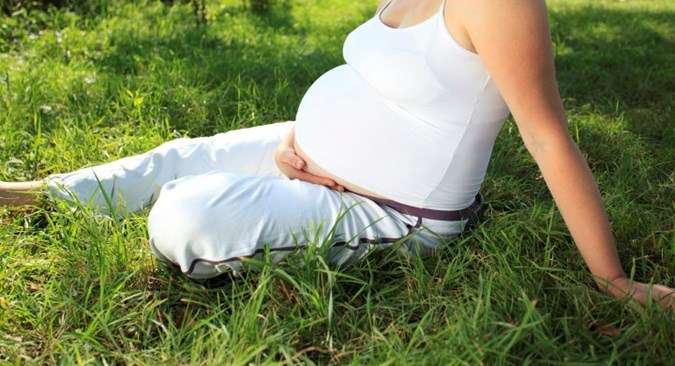Can medication for anxiety and sleeping problems during pregnancy harm the child?

Many women experience anxiety and sleeping problems during pregnancy. The research so far has been unable to determine the safety for the child if the mother is prescribed drugs to treat these disorders.
A new research article containing data from the Norwegian Mother and Child Cohort Study provides new knowledge about the use of these drugs for pregnant women.
"It is important to know which drugs are safe to use during pregnancy and which ones can affect the foetus," says Ragnhild Eek Brandlistuen, researcher and project manager at the Norwegian Institute of Public Health.
The researchers studied nearly 14,000 siblings in the Norwegian Mother and Child Cohort Study (MoBa) using a sibling design. They compared the children of mothers who used z-hypnotics and anxiolytics during pregnancy to their siblings who had not been exposed to these drugs as a foetus. The comparisons were made when the children were 18 months and three years old.
"We wanted to find out whether the children who had been exposed to the drug as a foetus had more symptoms of mental disorders than their unexposed siblings," says Brandlistuen.
The study showed that:
- Children exposed to anxiolytics as a foetus had more symptoms of emotional disorders, such as social withdrawal and anxiety compared with their unexposed siblings at both 18 months and three years old.
- Children exposed to z-hypnotics as a foetus had no more symptoms of mental disorders than their unexposed siblings.
This knowledge allows healthcare professionals and pregnant women to assess the arguments for and against using medication during pregnancy.
"Any disadvantages for the child must be weighed against the benefits for the mother," says Brandlistuen.
A surprising finding was that maternal use of z-hypnotics during pregnancy was found to lead to fewer behavioural problems in three-year-olds than in the sibling where the mothers had not used medication during pregnancy.
"It is possible that drugs that alleviate sleep problems during pregnancy and provide a better quality of life for pregnant women are also beneficial for the child," says Brandlistuen.
However, she emphasises that more studies are needed before we can know this for sure.
Sibling analyses are important
All the children in the study have at least one biological sibling who is also participating in MoBa. Maternal drug use was measured at several times during pregnancy. The children's mental health problems were measured at the age of 18 months and three years.
Using sibling analyses, researchers could distinguish between genetic relationships where the child is at risk of inheriting mental health problems from the mother and environmental conditions where maternal use of medication may increase the risk of mental problems in the child.
"Association of prenatal exposure to benzodiazepines and child internalizing problems: A sibling-controlled cohort study" is published in PloS One.
The study is part of the MoBa project "Neurodevelopment of children exposed in utero to psychotropic drugs: A population-based cohort study."
More information: Ragnhild E. Brandlistuen et al. Association of prenatal exposure to benzodiazepines and child internalizing problems: A sibling-controlled cohort study, PLOS ONE (2017). DOI: 10.1371/journal.pone.0181042



















